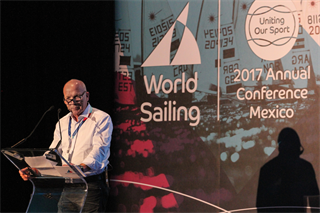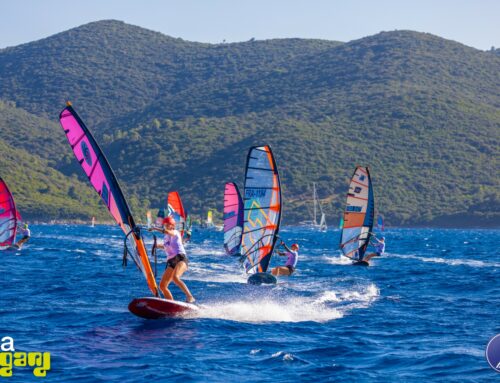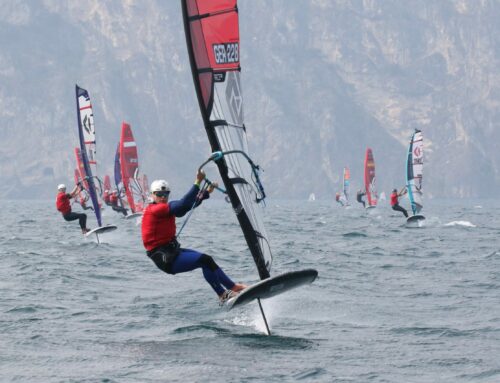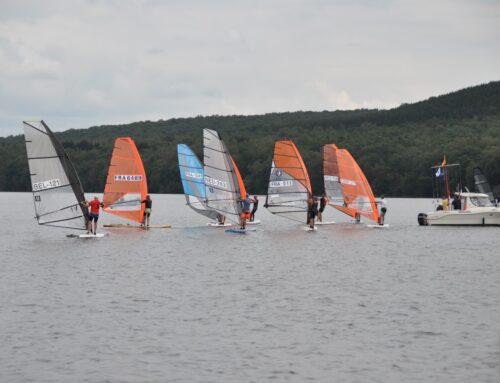World Sailing has launched its Sustainability Agenda 2030, which sets out the world governing body’s ambitious commitment to help create a better world through sport.
Sustainability Agenda 2030 was presented at today’s Sustainability Forum at the 2017 Annual Conference in Puerto Vallarta, Mexico, by Mike Golding OBE, World Sailing Sustainability Commission Chairman and Dan Reading, World Sailing Sustainability Programme Manager.[more]
Sustainability Agenda 2030 is available to download below:
Click here to view
Sustainability 2030 includes a series of challenging targets for the sport across technical standards, events, training, venues and facilities, members and participation. The release of Sustainability Agenda 2030 now kicks off a four-month consultation process, ahead of the targets being finalised in May 2018.
World Sailing’s Sustainability Commission advised on the development of the Sustainability Agenda 2030 and identified the following objectives:
Establish a robust approach to sustainability across the sport, sharing best practice and setting standards and targets, focusing on World Sailing operations, events and venues.
Reduce World Sailing’s carbon footprint and promote resource efficiency across the sport.
Respect and contribute to ecosystem health and biodiversity.
Promote diversity and accessibility across the sport, drive gender equity at World Sailing events in line with IOC 2020 targets.
Ensure sustainability is embedded into teaching of sailing through teaching and coaching frameworks.
Promote a culture of sustainability by sharing best practice and increasing sustainability awareness across MNAs, events, venues and affiliated industries.
Set technical standards by 2030 to reduce environmental impact of sailing industry focusing on end of life of composites and engine and energy technology.
Take a science based approach underpinned by research to understand our impact and identify solutions.
Ensure credibility and transparency through robust monitoring and reporting.
The Sustainability Commission will both guide and monitor progress against the plan.
An ongoing sustainability programme will operate to meet the stated targets as well as work on other ongoing initiatives both internally for World Sailing, and externally with members and stakeholders.
Furthermore, Sustainability Agenda 2030 supports both the International Olympic Committee’s Sustainability Strategy and shows World Sailing’s contribution to the United Nations 2030 Agenda for Sustainable Development.
“We’re not claiming we’ve covered every single base but we’ve made a very good early effort to create an agenda for 2030. To make this work we need to tackle all areas with equal vigour and make all areas of our sport more sustainable. “
On the announcement, World Sailing CEO Andy Hunt added, “World Sailing have the opportunity to bring about substantial change across the Sport that can tangibly contribute to global sustainability.”
“Thanks to the work put in by World Sailing’s Sustainability Commission and open dialogue with our key stakeholders, we have clear objectives and deliverables that will be implemented across our events, at World Sailing’s headquarters and within the global sailing community.”
World Sailing’s Official Technology Partner, SAP and Automotive Partner, Volvo Ocean Race, Volvo Group and Volvo Car Group and Official Timepiece Rolex have pledged their support to working with World Sailing on sustainability programmes.





